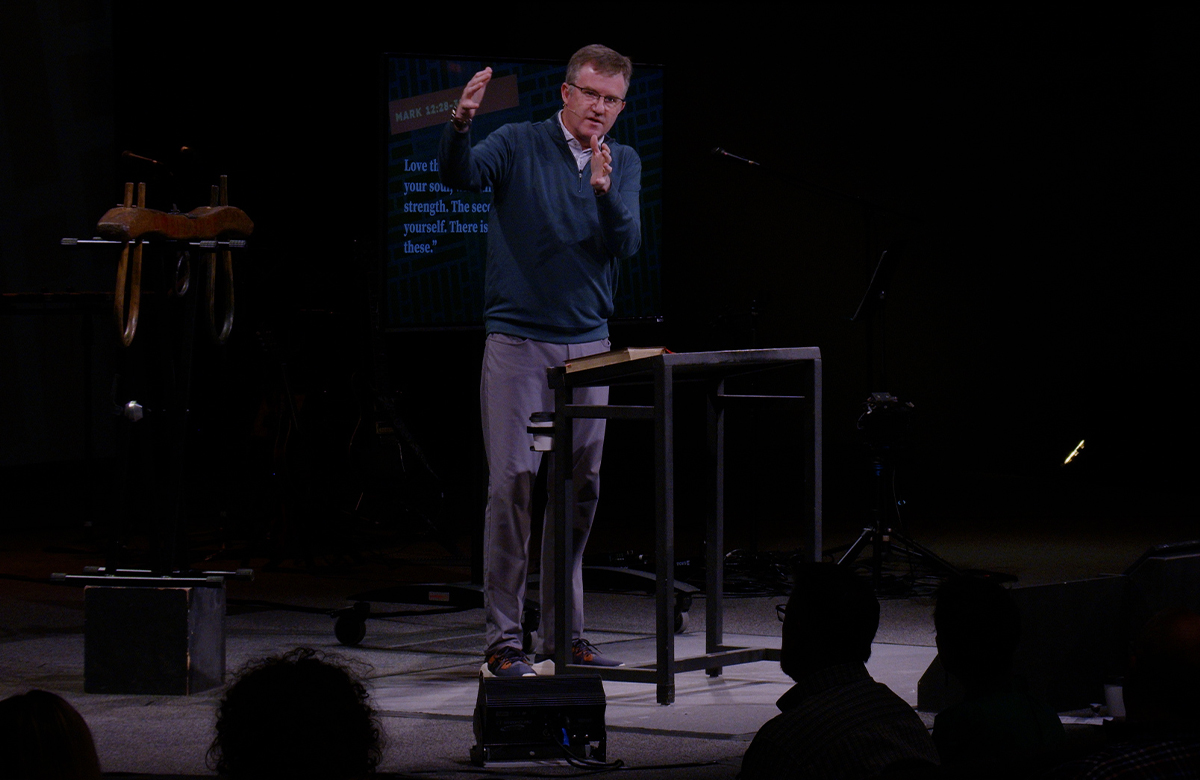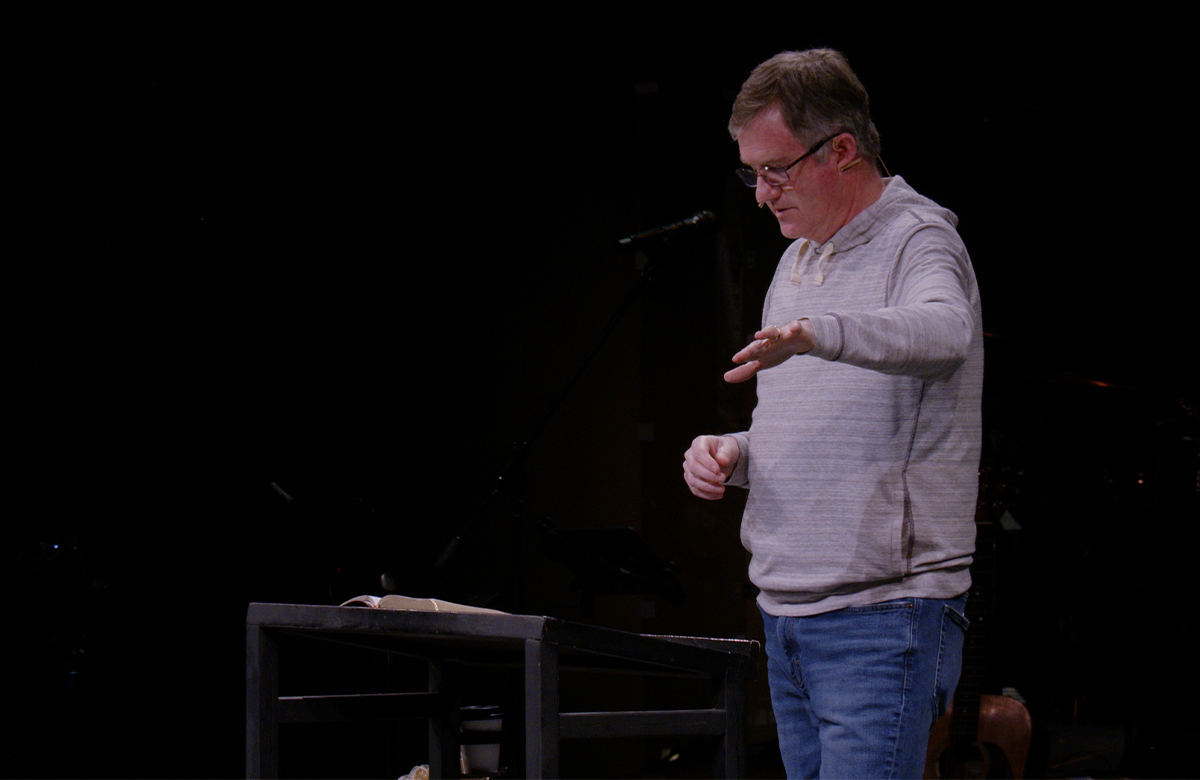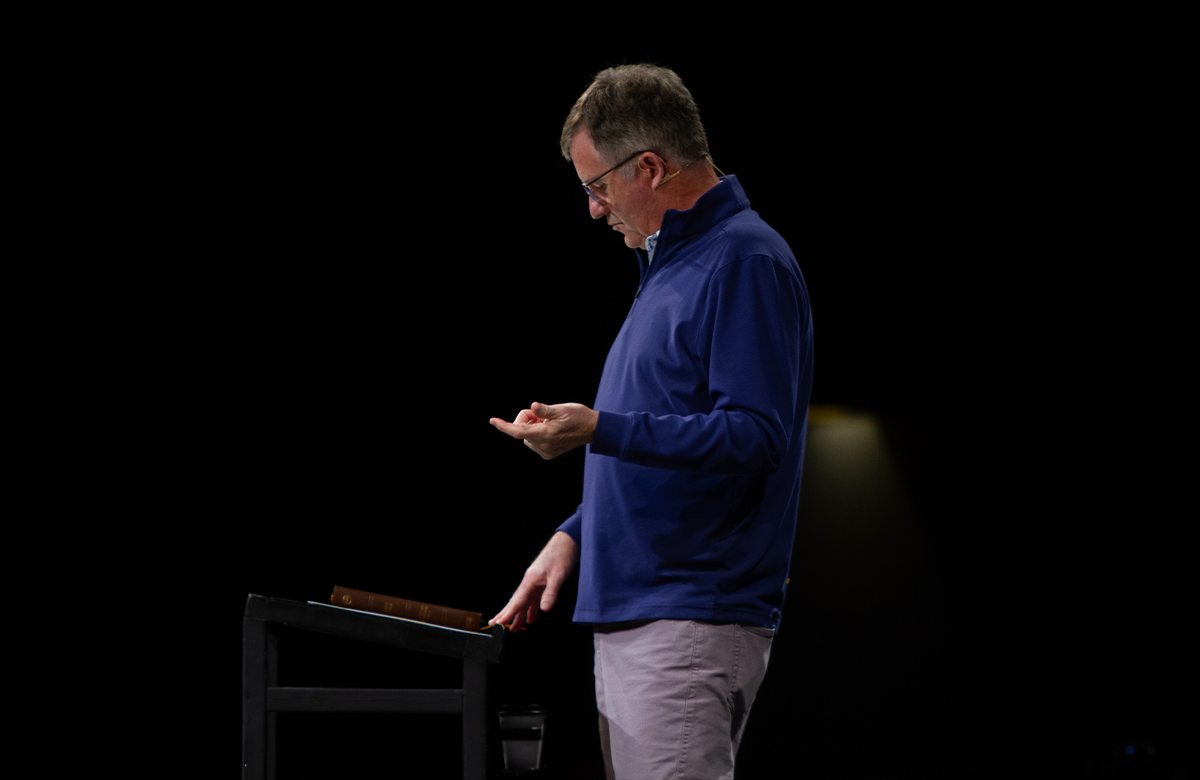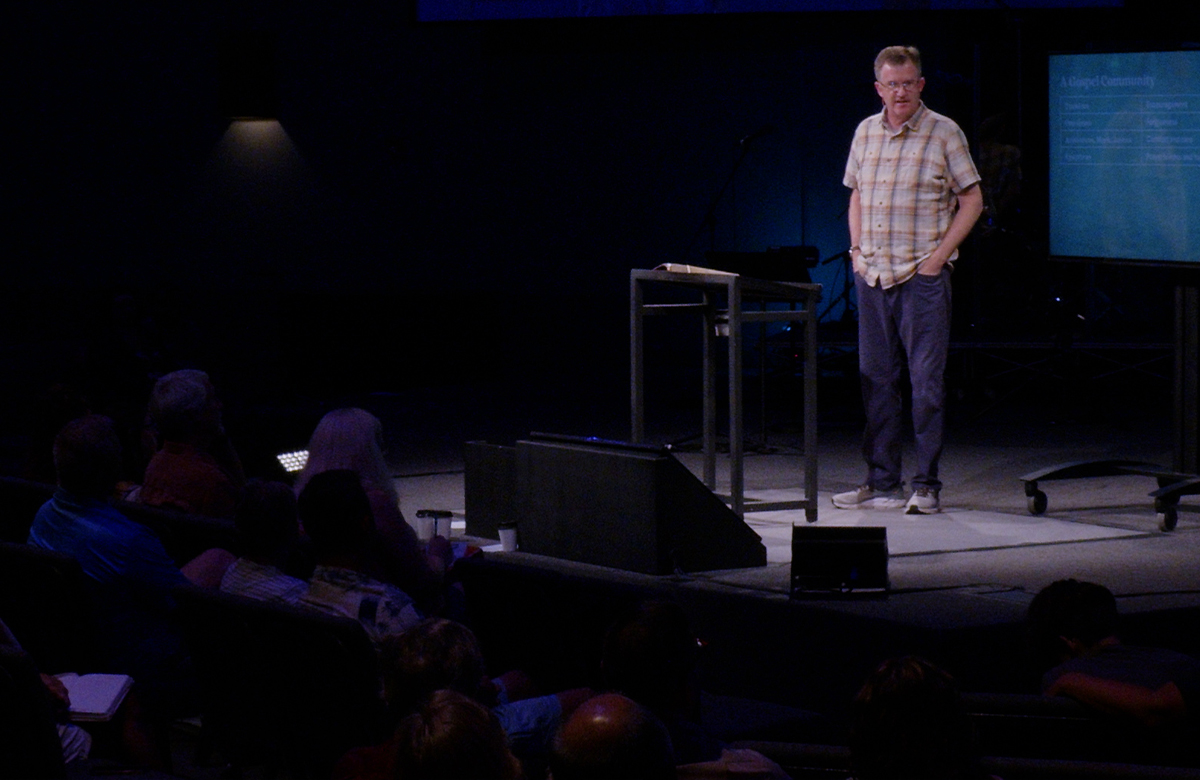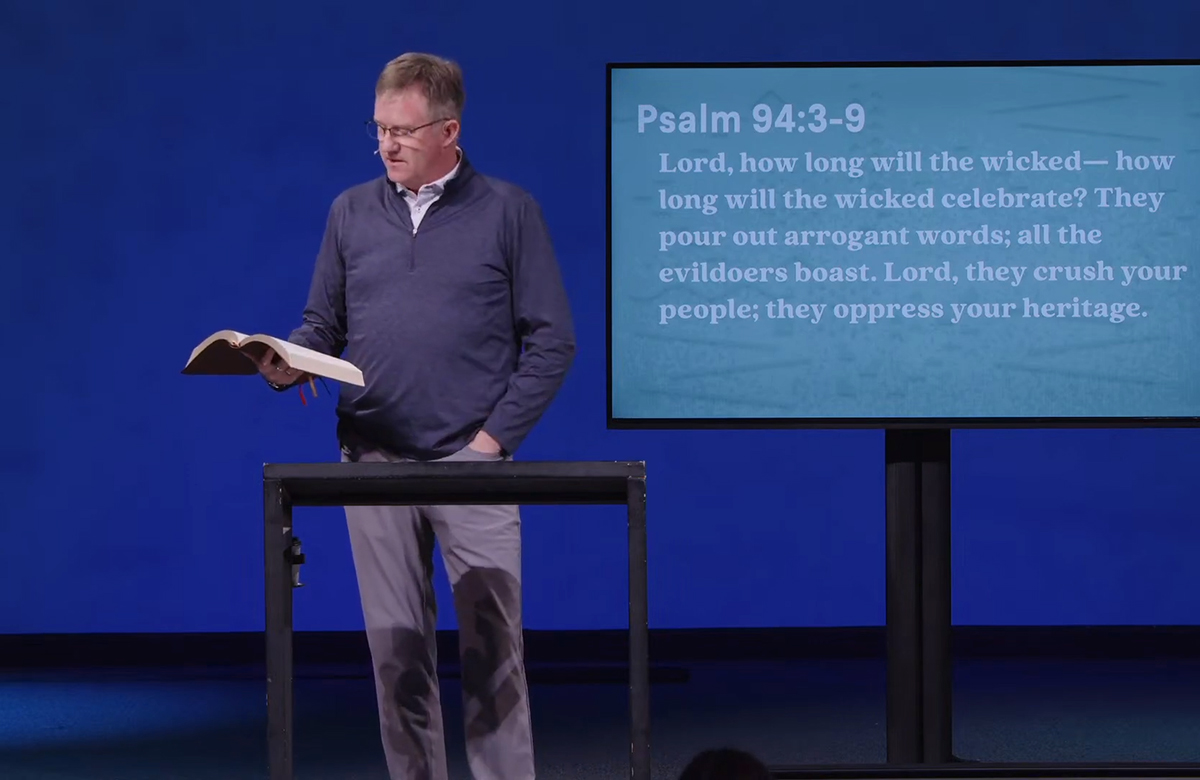08.23.15 | Perpendicularity
Paul On Trial
James Granger
Pastor James Granger, teaches on the historical event of Apostle Paul’s trial in Caesarea and how he uses this unfair and difficult situation to preach the Gospel of Christ.
Acts 24-26
- Live Notes
The LORD ends up encouraging Apostle Paul and sends him off to Rome.
The following night the Lord stood by him and said, “Take courage, for as you have testified to the facts about me in Jerusalem, so you must testify also in Rome.” (Acts 23:11)
Though being treated unfairly, Apostle Paul response in a Gospel-centered manner.
And after five days the high priest Ananias came down with some elders and a spokesman, one Tertullus. They laid before the governor their case against Paul. And when he had been summoned, Tertullus began to accuse him, saying: “Since through you we enjoy much peace, and since by your foresight, most excellent Felix, reforms are being made for this nation, in every way and everywhere we accept this with all gratitude. But, to detain you no further, I beg you in your kindness to hear us briefly. For we have found this man a plague, one who stirs up riots among all the Jews throughout the world and is a ringleader of the sect of the Nazarenes. He even tried to profane the temple, but we seized him. By examining him yourself you will be able to find out from him about everything of which we accuse him.” (Acts 24:1-8)

And when the governor had nodded to him to speak, Paul replied: “Knowing that for many years you have been a judge over this nation, I cheerfully make my defense. You can verify that it is not more than twelve days since I went up to worship in Jerusalem, and they did not find me disputing with anyone or stirring up a crowd, either in the temple or in the synagogues or in the city. Neither can they prove to you what they now bring up against me. But this I confess to you, that according to the Way, which they call a sect, I worship the God of our fathers, believing everything laid down by the Law and written in the Prophets, having a hope in God, which these men themselves accept, that there will be a resurrection of both the just and the unjust. So I always take pains to have a clear conscience toward both God and man. Now after several years I came to bring alms to my nation and to present offerings. While I was doing this, they found me purified in the temple, without any crowd or tumult. But some Jews from Asia—they ought to be here before you and to make an accusation, should they have anything against me. Or else let these men themselves say what wrongdoing they found when I stood before the council, other than this one thing that I cried out while standing among them: ‘It is with respect to the resurrection of the dead that I am on trial before you this day.’” (Acts 24:10-21)
But Felix, having a rather accurate knowledge of the Way, put them off, saying, “When Lysias the tribune comes down, I will decide your case.” Then he gave orders to the centurion that he should be kept in custody but have some liberty, and that none of his friends should be prevented from attending to his needs. After some days Felix came with his wife Drusilla, who was Jewish, and he sent for Paul and heard him speak about faith in Christ Jesus. And as he reasoned about righteousness and self-control and the coming judgment, Felix was alarmed and said, “Go away for the present. When I get an opportunity I will summon you.” At the same time he hoped that money would be given him by Paul. So he sent for him often and conversed with him. When two years had elapsed, Felix was succeeded by Porcius Festus. And desiring to do the Jews a favor, Felix left Paul in prison. (Acts 24:22-27)
Again, Apostle Paul has an opportunity present the Gospel in an unfair situation and so he seizes the chance.
After he stayed among them not more than eight or ten days, he went down to Caesarea. And the next day he took his seat on the tribunal and ordered Paul to be brought. When he had arrived, the Jews who had come down from Jerusalem stood around him, bringing many and serious charges against him that they could not prove. Paul argued in his defense, “Neither against the law of the Jews, nor against the temple, nor against Caesar have I committed any offense.” But Festus, wishing to do the Jews a favor, said to Paul, “Do you wish to go up to Jerusalem and there be tried on these charges before me?” But Paul said, “I am standing before Caesar’s tribunal, where I ought to be tried. To the Jews I have done no wrong, as you yourself know very well. If then I am a wrongdoer and have committed anything for which I deserve to die, I do not seek to escape death. But if there is nothing to their charges against me, no one can give me up to them. I appeal to Caesar.” Then Festus, when he had conferred with his council, answered, “To Caesar you have appealed; to Caesar you shall go.” (Acts 25:6-12)


Apostle Paul is finally on trial in front of Festus and King Agrippa II.
Now when some days had passed, Agrippa the king and Bernice arrived at Caesarea and greeted Festus. (Acts 25:13)
Then Agrippa said to Festus, “I would like to hear the man myself.” “Tomorrow,” said he, “you will hear him.” So on the next day Agrippa and Bernice came with great pomp, and they entered the audience hall with the military tribunes and the prominent men of the city. Then, at the command of Festus, Paul was brought in. (Acts 25:22-23)
So Agrippa said to Paul, “You have permission to speak for yourself.” Then Paul stretched out his hand and made his defense.”(Acts 26:1)
And as he was saying these things in his defense, Festus said with a loud voice, “Paul, you are out of your mind; your great learning is driving you out of your mind.” But Paul said, “I am not out of my mind, most excellent Festus, but I am speaking true and rational words. For the king knows about these things, and to him I speak boldly. For I am persuaded that none of these things has escaped his notice, for this has not been done in a corner. King Agrippa, do you believe the prophets? I know that you believe.” And Agrippa said to Paul, “In a short time would you persuade me to be a Christian?” (Acts 26:24-28)
In light of not being set free, Apostle Paul now has the chance to share the Gospel with Caesar.
And Paul said, “Whether short or long, I would to God that not only you but also all who hear me this day might become such as I am—except for these chains.” Then the king rose, and the governor and Bernice and those who were sitting with them. And when they had withdrawn, they said to one another, “This man is doing nothing to deserve death or imprisonment.” And Agrippa said to Festus, “This man could have been set free if he had not appealed to Caesar.” (Acts 26:29-32)
As we walk with Christ, let’s remember that even unfair circumstances in life are opportunities to share the Gospel.
- More From This Series
- More From This Speaker






























